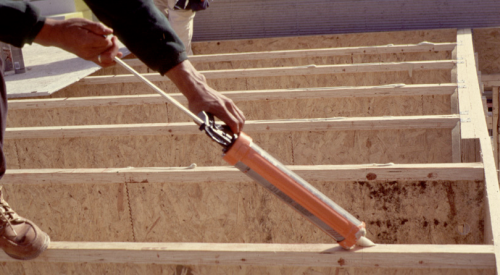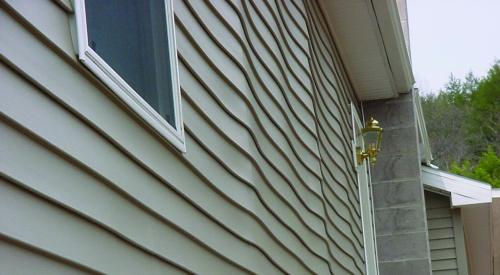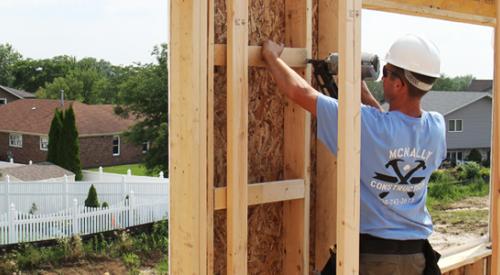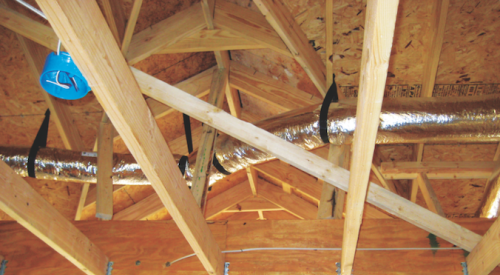Engineers at the University of Maine's Advanced Engineered Wood Composites Center might have invented a way to help houses survive natural disasters. The team, led by center director Habib Dagher and William Davids, an assistant professor of civil and environmental engineering, has developed and patented a reinforced sheathing panel that strengthens walls by up to 20% when used with traditional 2x4 framing, Dagher says.
The team added 1-inch strips of a fiber-reinforced polymer to the perimeter of OSB and plywood panels - where they're typically nailed to framing members and roof rafters - and in their corners. The reinforced areas maintain a stronger connection under stress than typical panels and help mitigate human error or code deviation.
In earthquakes, hurricanes and other extreme situations, racking or uplift can cause conventional panels to disengage from framing members. Dagher says panels often tear at the edges or pull completely away from studs, leaving the nails embedded.
Edge-tear happens when nails placed too close to a panel's edge, and perhaps driven improperly, split and weaken the edge. Nail pull-through can occur when nail guns shoot nailheads partway through panels, compromising their integrity. An inadequate number of nails connecting the sheathing to the studs - codes in high-wind areas call for a nail every 3 inches - increases the potential for failure.
The center is talking with OSB and plywood makers about licensing the technology and bringing it to market. Preliminary estimates indicate that building a 3,000-square-foot house with the fiber-reinforced panels rather than conventional sheathing would add $500 to the home's cost, Dagher says. He points out, however, that the reinforced panels need be used only in vulnerable areas such as at roof lines.











